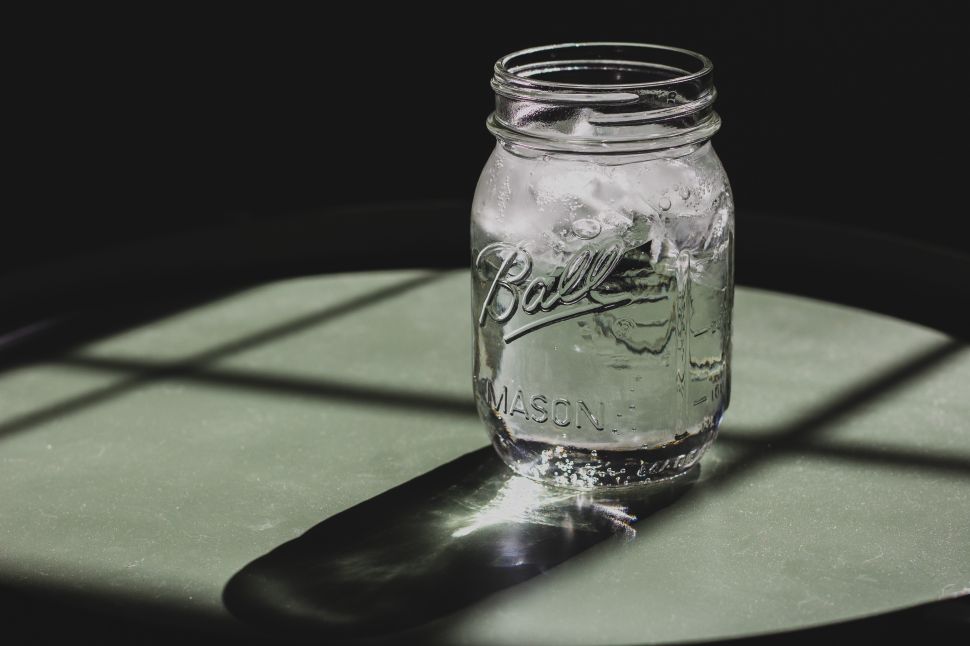How To Get Electrolytes While Fasting

Fasting—or purposefully abstaining from most or all foods for a period of time—has been practiced for thousands of years by people all around the world, and it is gaining more and more popularity in today's modern times. And while ancient fasters may have turned to the practice primarily for spiritual or religious reasons, a large body of research notes that intermittent fasting (or IMF) may also be one of the most effective ways to not only prevent weight gain, but also to help improve health markers including blood sugar, triglycerides and cholesterol.
A popular type of fasting is intermittent fasting, which involves limiting eating to a certain number of hours during the day, and is commonly practiced as a complement to the ketogenic diet, paleo diet, or other low carb diets. There are lots of different ways you can do an intermittent fast, but it typically involves not eating for 12 to 18 hours and only consuming
Fasting can certainly improve overall health, but there are also some precautions to be aware of. And if you've ever tried fasting but felt sluggish, moody, or overly hungry, it's highly likely that you were making one of the following common fasting mistakes:
You're Dehydrated and/or Lacking Electrolytes
A portion of the fluids we obtain throughout the day come from
During your fasting window, I'd advise sipping on hydrating beverages between meals—things like plain
You're Eating the Wrong Foods While Fasting Intermittently
The reason intermittent fasting is doable for so many people is the fact that you're not giving up food for an unreasonable amount of time. By simply extending the amount of time between dinner and breakfast, or skipping breakfast or dinner, you can reap incredible benefits, including better cognitive function, weight loss and improved digestion. That said, when you are allowed to eat, you need to stay away from unhealthy, processed foods. Since you're eating less often while fasting, it's even more important to make sure you get all the essential nutrients that you require when you do eat.
Filling up on lots of empty calories from foods like refined grains and sugary snacks will likely result in you taking in lower levels of certain nutrients—especially key electrolytes and essential vitamins. To get the most out of fasting and ensure that you feel your best during the process, I recommend adopting a healing diet that consists of lots of organic produce, healthy fats, and high-quality lean protein. This will also help prevent symptoms like fatigue, muscle spasms, weakness and brain-fog.
You're Not Eating Enough of the Right Foods
Nutrient deficiencies are even more likely if you're under-eating (obtaining too few calories) during your intermittent fast—particularly if you're active, which further increases your nutrient and energy needs. Additionally, hunger pangs can make it difficult to work or sleep if you're not eating enough.
Women, especially, should be careful to not under-eat or restrict calories too much while fasting. Studies regarding intermittent fasting for women show this can have a negative impact on reproductive hormones, menstruation, and emotional wellbeing.
To avoid these consequences, I recommend adding more calories to meals via healthy fats like coconut oil and avocado, in order to stabilize your appetite and blood sugar levels.
You're Fasting Too Many Days Per Week
Just like other components of a healthy lifestyle—like clean eating or exercising—it's easy to believe that more is always better. But just as overtraining can lead to injury, sleep difficulties, and elevated cortisol levels, fasting too much or too often can also have counter-productive effects.
Most experts recommend fasting about 2-4 days per week, as any more than this may negatively affect metabolism, performance, and appetite as your body starts to defend itself against perceived starvation. It's also important to consider the fasting window while doing an intermittent fast, as too large of a window can result in very high hunger levels that trigger uncontrollable eating, or "bingeing."
It can take some trial and error to figure out the proper amount of fasting that's best for you—in terms of number of days per week, as well as how long the fast lasts each day. Start with 1-2 fasts per week, each lasting about 12-14 hours. Once you're used to this routine, you can then consider adding in one additional day of fasting, or extending your fasts up to 15-18 hours if that feels tolerable.
You're Training Too Intensely While Fasting
Some people may be able to get away with higher amounts of exercise or intense workouts on fasting days (especially if they are mostly healthy and accustomed to regular activity). But the majority of fasters will feel better when they give their body more rest during fasting days—and probably more sleep, too.
Experts recommend skipping intense workouts—such as HIIT or long aerobic training sessions—on days when less fuel is being taken in. Instead, gentler, restorative workouts—like a walk outside or yoga—are usually a better fit on fasting days in order to prevent symptoms like fatigue, dizziness, or weakness.
And no matter what day of the week it is—whether you're fasting or not—remember that getting good sleep is always essential for repairing the body and maintaining healthy digestion, detoxification, and hormonal balance. Aim for at least 7-9 hours per night in order to prevent cravings, low energy and moodiness.
Dr. Josh Axe, DNM, DC, CNS, is a doctor of natural medicine, clinical nutritionist and author with a passion to help people get well using food as medicine. He recently authored 'Eat Dirt: Why Leaky Gut May Be the Root Cause of Your Health Problems and Five Surprising Steps to Cure It' and he operates one of the world's largest natural health websites at http://www.DrAxe.com. Follow him on Twitter @DRJoshAxe.

How To Get Electrolytes While Fasting
Source: https://observer.com/2017/06/most-common-intermittent-fasting-mistakes/#:~:text=You're%20Dehydrated%20and%2For%20Lacking%20Electrolytes&text=During%20your%20fasting%20window%2C%20I,herbal%20tea%2C%20or%20bone%20broth.
Posted by: redfieldfoublinges.blogspot.com

0 Response to "How To Get Electrolytes While Fasting"
Post a Comment